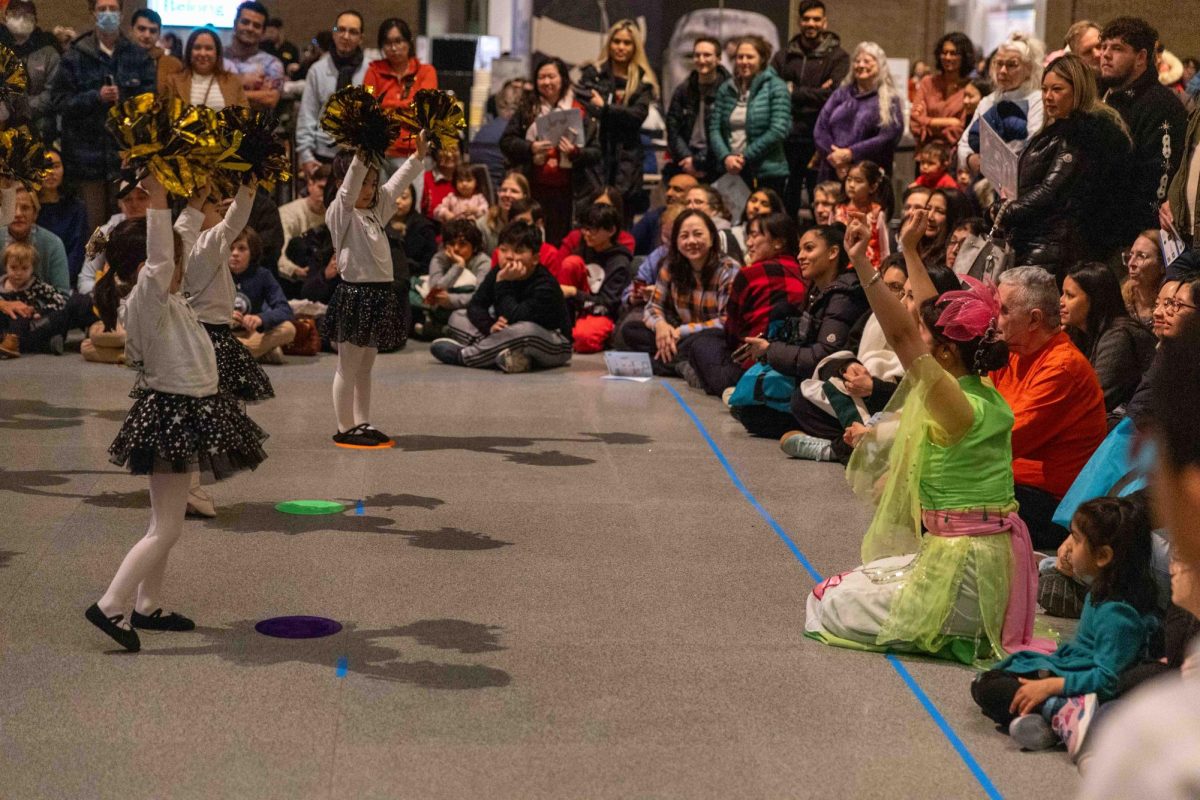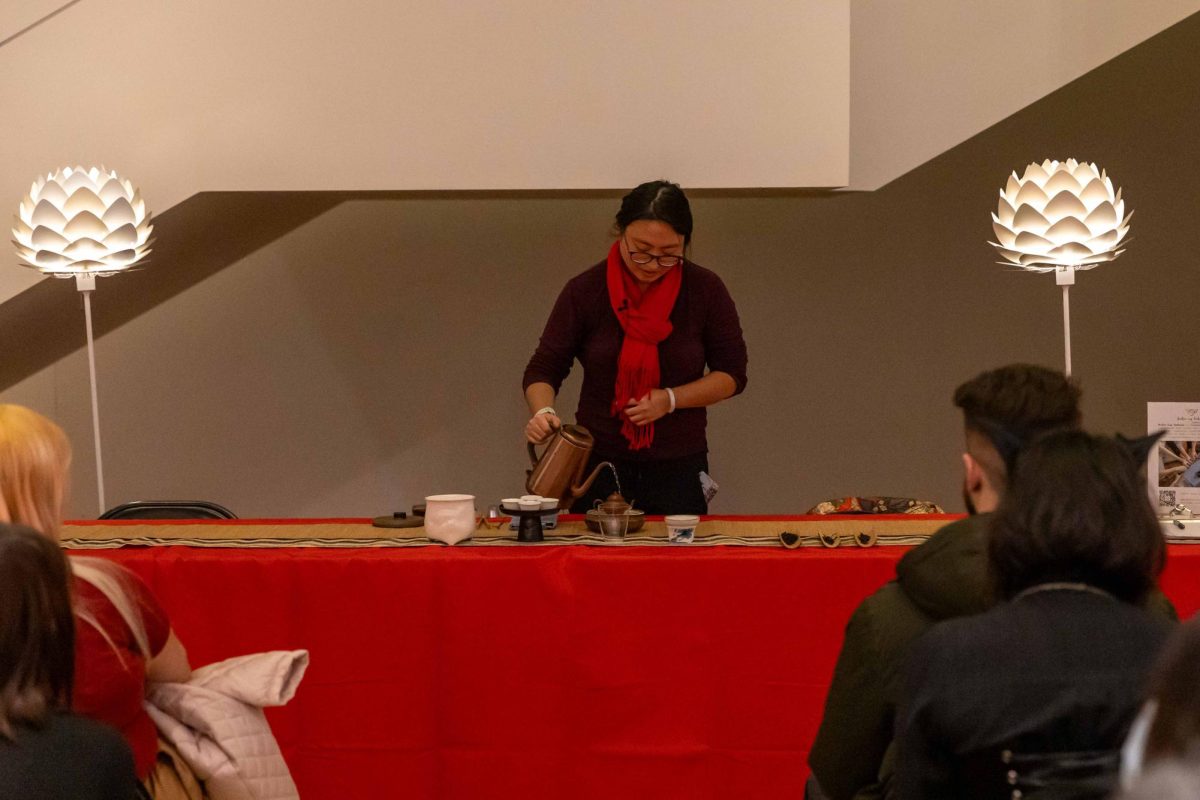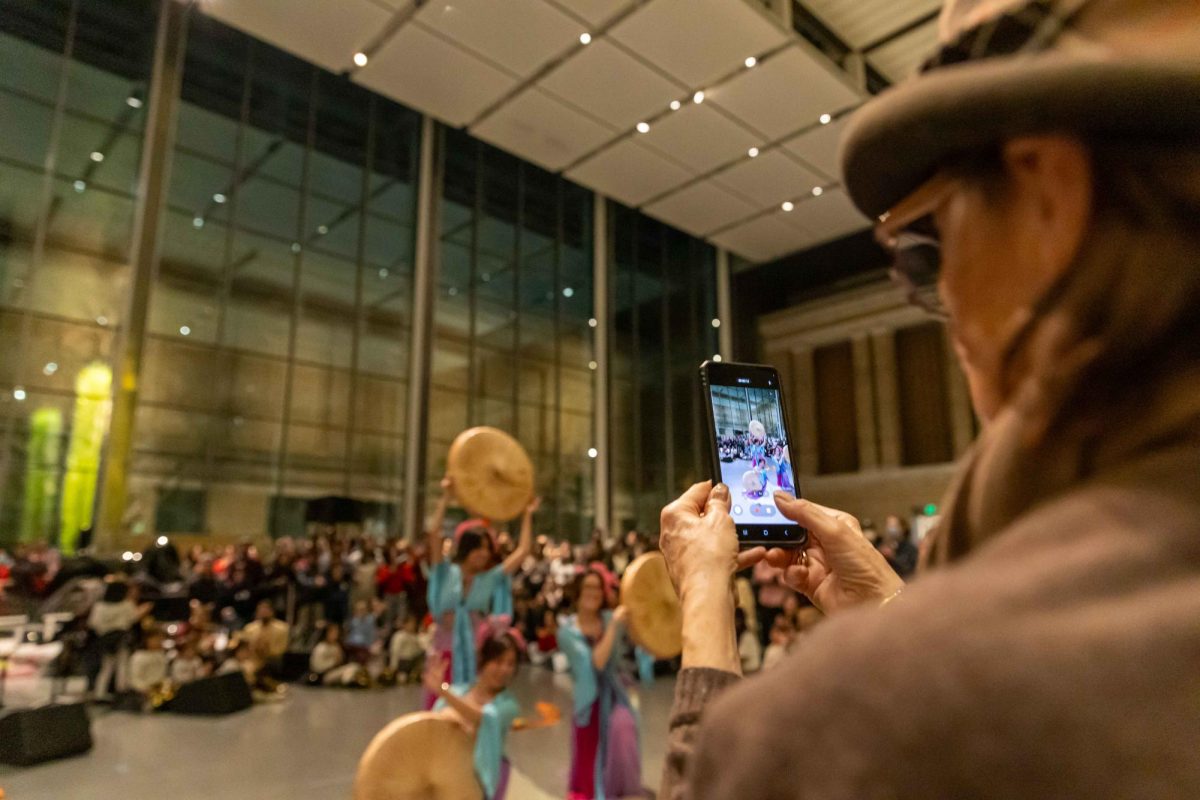Vibrant colors of lion dancers and echoes of traditional music filled the halls of the Museum of Fine Arts on Jan. 30 for a special event to celebrate Lunar New Year. With more than 1,500 people in attendance, many adorned in traditional clothing, the MFA transformed into a lively celebration of festivities.
Paper cutting, captivating performances of dance and music, and traditional demonstrations from different cultures took over the museum. The MFA also held Spotlight Talks, in-depth, quick deep dives to objects on view, led by curators on specific works of arts pertaining to Lunar New Year.
“[It’s] very exciting to be able to share my own culture with folks in the museum,” MFA Manager of Public Programs Imani Vieira said in an interview. “[The MFA] gives the space to showcase the way [cultures] celebrate.”
Many attendees gathered in the Shapiro Family Courtyard where several events took place. One event was by the STAR Group Boston and Little STAR Group, who performed dances that reflected Vietnamese culture. Another event was by Gipeun with a performance of traditional Korean music.
“The museum feels very alive and very energetic,” Vieira said. “These performances are quite literally bringing to life the things we are seeing in a painting.”

One of the last performances in the courtyard was performed by the Gund Kwok Asian Women’s Lion and Dragon Dance Troupe. Their performance entailed a dance celebratory of the Year of the Snake, and the last event of the night which was a lion dance featuring eight lions. The lion dance showcased Gund Kwok’s dancers in colorful lion costumes who were accompanied by musicians.
All the organizations are local. “[Visitors] decide how they want to experience [the celebration] beyond the museum walls,” Vieria said.
Courtney Yang, an MFA employee, was able to watch one of the lion dances at the start of the night.
“My family is mixed, so we don’t do much to celebrate at home,” she said to The Beacon. “[It’s] nice to be able to come out and experience a big celebration.”
Vieira noted this year it was “more accessible for people to come because there is a lower ticket cost.”
Audrey DiMarco, an attendee who was watching alongside Yang, said “[I] usually do not do much, [my] family is mostly white. [Lunar New Year] is something that’s lost in the immigrant story.” She and DiMarco are both adopted.

Jamila Zhao, another attendee, told The Beacon her grandmother was born in the Year of the Snake. “[I] think it’s great, Year of the Snake,” she said. “I’m a [Year of the] Monkey.” Zhao added, “Apparently [the snake] is supposed to protect the monkey.”
“When I’m at home, my family and I have a nice, traditional Chinese dinner,” Zhao said.
In a different part of the MFA, there was a demo called Sebae, a Lunar New Year ritual in Korea. The ritual involves bowing to family elders to show respect. Jungyeon Kim, one of the demonstrators, said, “In Korea, respect is very important.” After the demo, attendees were invited to try on hanbok, a traditional Korean dress, and participate in popular Korean games.
Castien Dowling and Leanna Villarreal, attendees who observed the demonstration, said they both came for Lunar New Year, even though they do not celebrate themselves. “I really loved the lion dance,” said Dowling. “[I loved the] fabrication of the lion costumes [and] outfits, the blinking was so cute.”
“I prefer the Korean event because it feels so much more human, less staged,” Villarreal said. “I appreciate how it’s so interactive, how human it is, [and] more welcoming.”
Dowling and Villarreal also tried out the games offered by the demonstrators. The games were Ddakji and Gonggi, seen in the popular Netflix series “Squid Game.” The series is a Korean drama released in 2021, and is well-known for the Korean children’s games shown as part of the storyline.

Kim said Ddakji and Gonggi are popular even for Koreans. “I love playing Gonggi with my children now,” said Kim.
When it came to working with all the organizations, Vieira said, “It’s all about transparency.”
Kenley, who went the previous year to the MFA’s Lunar New Year celebration, said “there’s more variation [this year compared] to last year in terms of diversity.”
From trying on hanbok, traditional Korean clothing worn during Lunar New Year, and enjoying traditional Korean games, Kim said the best part about Lunar New Year is family. “I enjoy families getting together, for me, everywhere.”